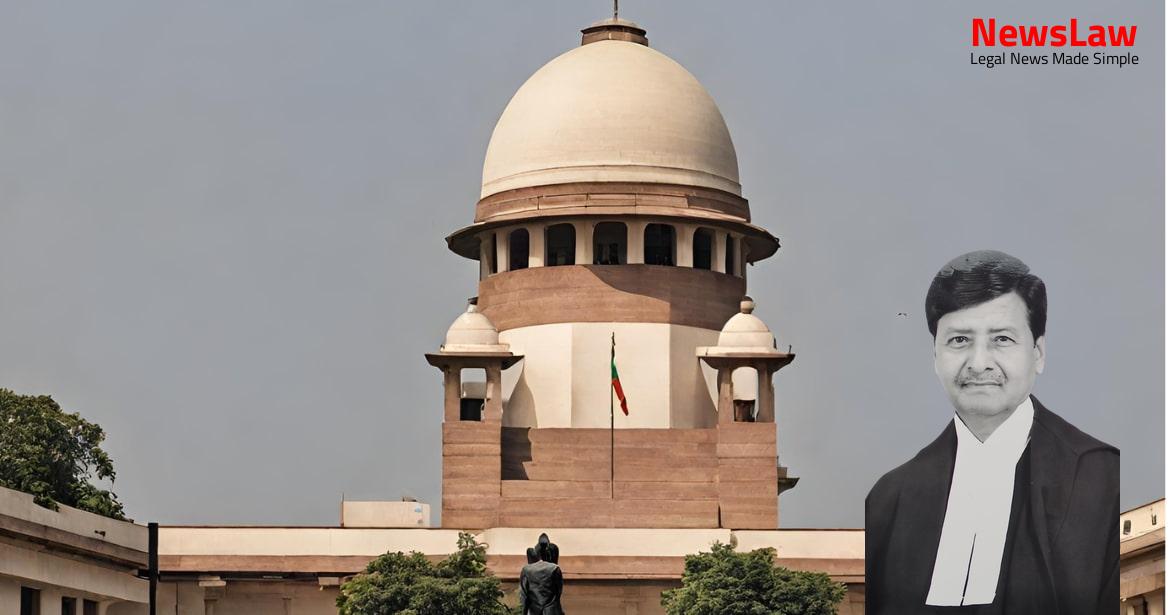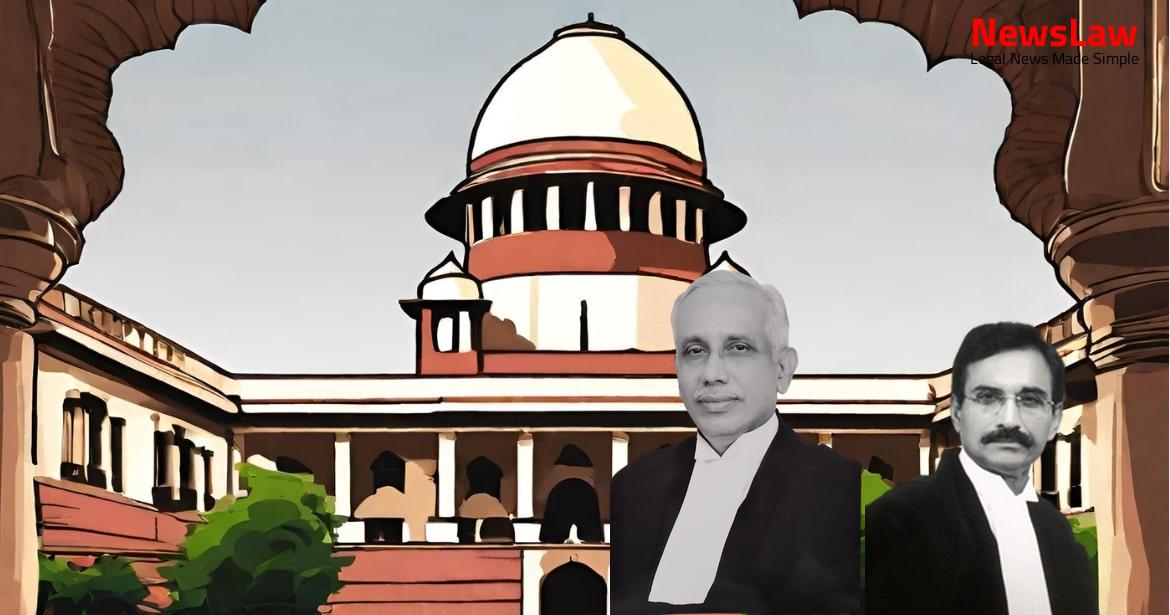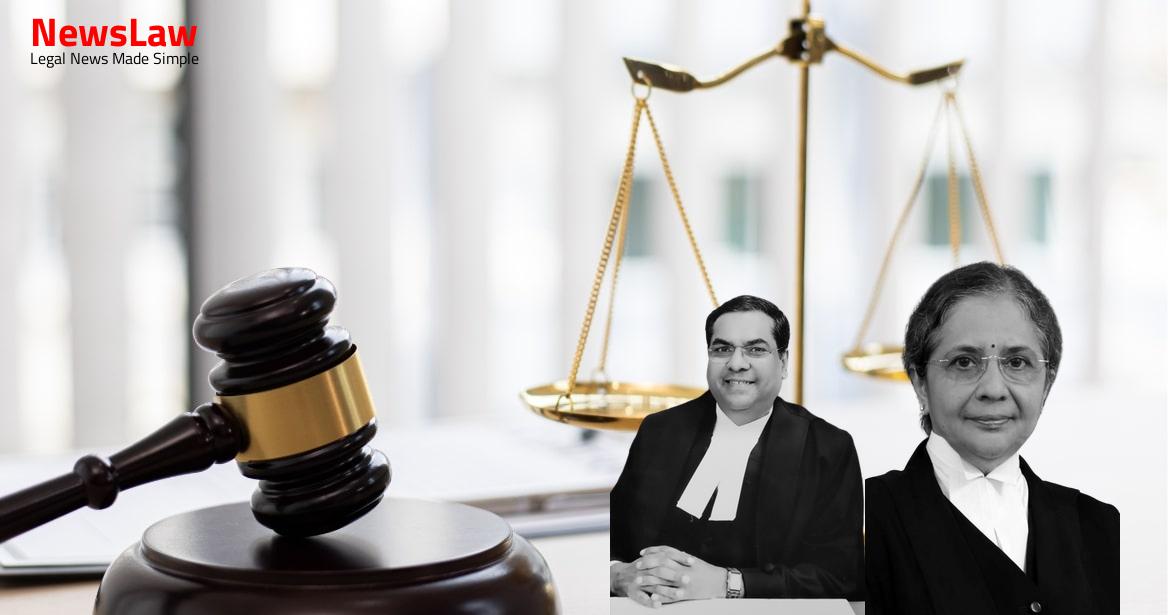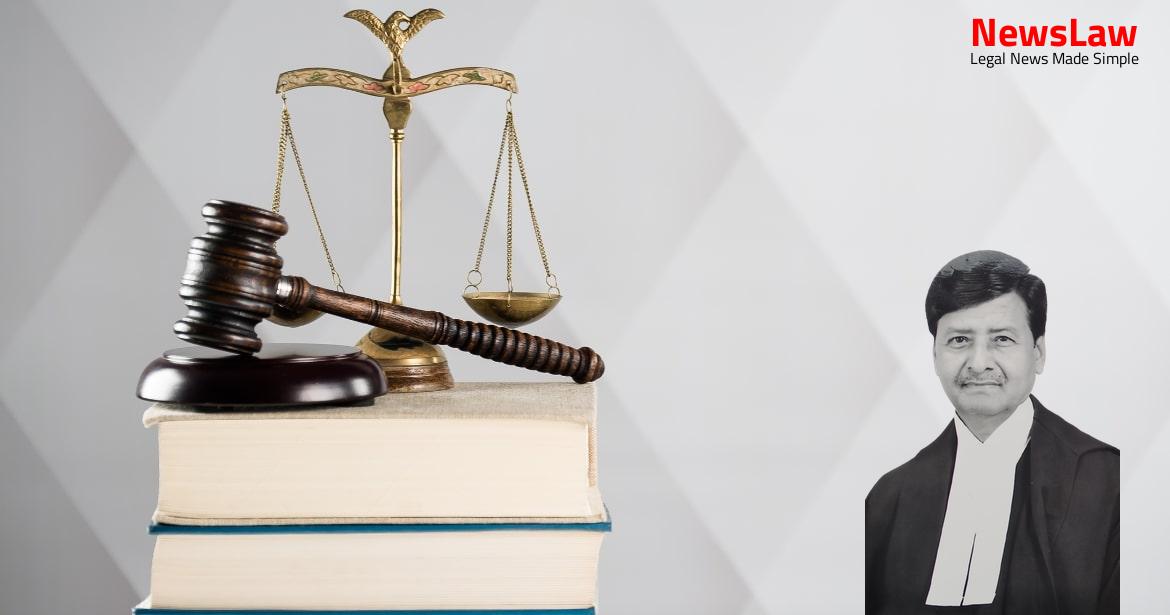In a recent pollution control case, the court delves into the intricacies of conflicting legal provisions. The analysis focuses on the interplay between Section 197 of the Criminal Procedure Code and Section 48 of the Water Act, emphasizing the significance of legal interpretation in environmental law. Stay tuned to unravel the complexities of this legal conundrum.
Facts
- The High Court remitted the matter back to the lower Appellate Court for fresh consideration on merits.
- The original complainant, Karnataka State Pollution Control Board, filed Criminal Appeal No.2637 of 2011 before the High Court of Karnataka, Dharwad Bench.
- The High Court set-aside the view taken by the lower Appellate Court based on a previous decision.
- During the judgment, the High Court referred to a specific case and concluded that protection under Section 197 of the Code would not be available.
- The appeal challenges the order dated 13.03.2020 passed by the High Court in Criminal Appeal No.2637 of 2011.
- The appellant, Chief Officer of Sandur Gram Panchayat, and Sandur Gram Panchayat were accused of offences under The Water (Prevention and Control of Pollution) Act, 1974.
- The appellant was found guilty and sentenced in a previous judgment.
- The appellant’s appeal was allowed solely on the ground of being a public servant entitled to protection under Section 197 of the Code.
Also Read: Court’s Jurisdiction in Re-appraising Arbitrator’s Findings
Arguments
- Section 48 of the 1974 Act creates a rebuttable presumption regarding the guilt of the Head of the Department in government department offenses.
- There is a conflict between the requirement of Section 197 CrPC and Section 48 of the 1974 Act.
- Section 60 of the 1974 Act would prevail over any other enactment in case of such conflicts.
- If Section 197 sanction is mandatory, it would hinder the operation of the deemed fiction in Section 48 of the 1974 Act.
- The Supreme Court in the V.C. Chinnappa Goudar v. Karnataka case discussed the exclusion of Section 197 protection under the Water Act’s deeming provision.
Also Read: Contrary Directions in Issuance of Letter of Intent
Analysis
- Section 48 of the 1974 Act deems the Head of the Department guilty when an offence is alleged against them.
- The proviso to Section 48 allows the Head of the Department to prove the offence was committed without their knowledge or despite due diligence.
- The safeguard under Section 48 does not permit seeking shelter under Section 197 CrPC, as it conflicts with the power created under Section 48.
- Section 5 CrPC clarifies that special or local laws take precedence if there are no contrary provisions.
- No specific provision mandates obtaining sanction to proceed against a public servant under the 1974 Act.
- Violation of Water Act by a Department deems the Head of the Department guilty as per Section 48.
- Officials under the Water Act still fall under Section 47 of the Act.
- Non-public servant offenders or corporate entities in private sectors are not protected by Section 197 CrPC.
- Section 197 CrPC contradiction with Section 48 would trigger Section 60 of the 1974 Act with overriding effect.
- Defences available to establish whether the offense was committed without knowledge or with due diligence to prevent it.
- Protection under Section 197 of the Code not available due to deeming fiction under Section 48 of the Water Act.
- Public servant being Chief Officer or Commissioner cannot be considered as ‘Head of the Department of the Government’.
- Matter does not fall under Section 48 of the Water Act but directly under Section 47.
- Deeming fiction under Section 47 of the Water Act dis-entitles public servant from protection under Section 197 of the Code.
- Present case is completely covered by the decision in B. Heera Naik (Supra).
- Instant matter dealt with by High Court and this Court regarding applicability of Section 197 of the Code
- High Court right in setting aside decision of lower Appellate Court based solely on Section 197 issue
- High Court remitted matter to lower Appellate Court for fresh consideration on merits
Also Read: Application for Stay in Civil Suit Rejected: Court’s Legal Analysis
Decision
- The High Court’s view is affirmed
- The appeal is dismissed
Case Title: NOORULLA KHAN Vs. KARNATAKA STATE POLLUTION CONTROL BOARD (2021 INSC 330)
Case Number: Crl.A. No.-000599-000599 / 2021



